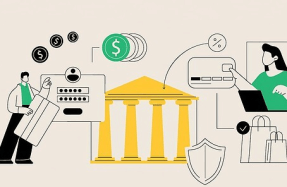MOVING FROM DATA AND KNOWLEDGE TO COMPETITIVE ADVANTAGE

Once the important paradigm of knowledge management was accepted by both the scholars of the academy of management and executives, knowledge cycle model began to make sense. The focus of this article is based upon the critical role of knowledge cycle model which allows a rich basis to understanding the mechanisms by which knowledge management and operations risk is influenced.
A Birds-Eye View of Knowledge
Knowledge, with its wide classifications, can be classified into individual and collective knowledge. Knowledge can also be classified using individual, social, and structured dimensions.
Knowledge, with its wide classifications, can be classified into individual and collective knowledge. Executives recruit followers based on their individual knowledge which refers to the individual’s skills, prior-knowledge, and proficiencies or sometimes referred to competencies. Collective knowledge, on the other hand, has been defined as “organising principles, routines and practices, top management schema, and relative organisational consensus on past experiences, goals, missions, competitors, and relationships that are widely diffused throughout the organisation and held in common by a large number of organisational members.” Thus, collective knowledge is part of the executive’s protocol and comes fairly natural at the higher echelons of the organisation. Executives follow Thomas Davenport and Laurence Prusak’s concern that concludes that if an executive cannot inspire its followers to share their individual knowledge with others, then this individual knowledge is not valuable to the organisation. Individual knowledge can, therefore, become a valuable resource by developing an organisational climate of openness for members to exchange their ideas and insights. Executives must create a climate of trust and openness for individuals to share individual knowledge. New technologies drawing on social-software systems through sharing individual knowledge around the organisations can positively contribute to create collective knowledge. Therefore, executives should build an atmosphere of trust and openness and use technology to convert individual knowledge into valuable resources for their organisation to close the performance gap and help organisations prosper.
You’re reading a preview, subscribe to read more.
Start your free 30 days





